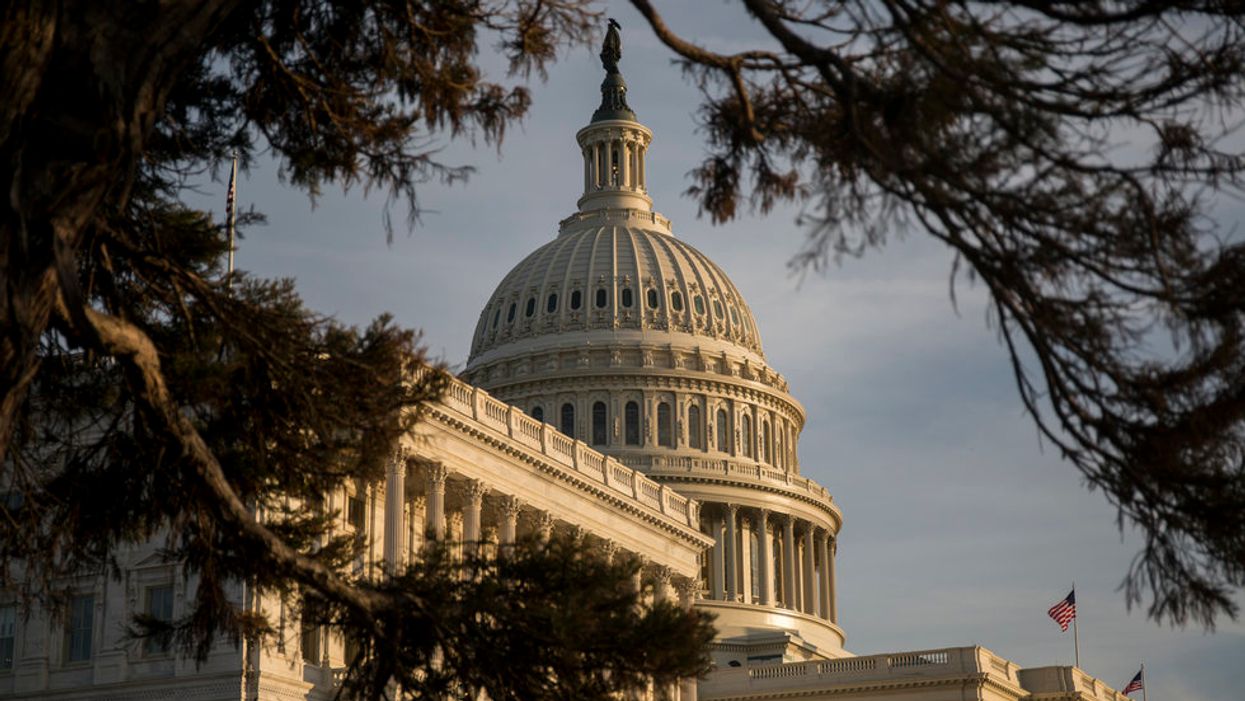Neal is federal government affairs manager and Peterson is vice president of public affairs at R Street Institute, a nonpartisan and pro-free-market public policy research organization.
Rodney King's famous lament sums up our collective feelings and frustrations about society today.
Passions are at a fever pitch. Our heated political debates have led family members to stop speaking to one another, individuals to live only around like-minded people, religious adherents to seek out worship spaces that only attract those whose political views match their own, and even people to only eat at restaurants or purchase items from brands that share their ideology.
The dysfunction in Congress mirrors these trends in our culture, its members having circled their wagons and given up even trying to get along.
Fortunately, Congress' greatest problem is also a solvable one and members don't have to be in leadership to help make it happen.
We are veterans of Capitol Hill. One of us spent three recent years (2015 to 2018) as a congressional aide, coming of professional age to the beat of the modern, deadlocked drum. She witnessed sharp partisan divides firsthand and experienced limited interactions with staff from across the aisle. In her time they never found a solution to the biggest challenges facing the country, on immigration, health care, crumbling infrastructure, a broken budget process and skyrocketing deficits. The only "accomplishment" of note was a tax cut bill enacted on straight party lines.
The other author was a chief of staff in the House of Representatives from 1992 to 2009. He looks back fondly on the bipartisan friendships made and legislative feats accomplished, successes predicated on collaboration and support from both Democrats and Republicans.
In reflecting together on our experiences, we realize we operated in completely different universes.
The mid '90s were not without partisanship, of course — think Newt Gingrich and Rahm Emanuel, arguably the sharpest and most effective bare-knuckle partisans of the last half century. And yet, members from both parties made a concerted effort to get along, work together and pass common-sense legislation.
One of our bosses was Republican Rep. Jim Ramstad of Minnesota. His top legislative accomplishment happened in 2008 because he took the time to get to know personally, and work closely with, a member from across the party aisle: a law expanding access to treatments for substance abuse for millions.
His partner was Rep. Patrick Kennedy of Rhode Island. The two would not have gotten to know one another had they not developed a personal connection. After Kennedy confirmed his addictions in 2006, Ramstad started accompanying Kennedy to recovery meetings.
The collaborative bipartisanship went deeper than their friendship. The Senate sponsors, Democrat Ted Kennedy (Patrick's father), and Republican Pete Domenici, were also united by personal experiences. And the president who signed the bill? George W. Bush, a Republican.
When members reach out to one another, and commit to recognizing one another not as enemies but as fellow human beings, they can get important things done.
Sadly, the news today is peppered with stories illustrating increased animosity, constant personal attacks and unfiltered Twitter-bashing. It's no surprise that in this environment, members' personal relationships are at a low, resulting in decreased civility, bipartisanship and productivity.
The simple solution harkens back to lessons learned on the elementary school playground: Be kind to one another, make friends and treat others the way you want to be treated. But these lessons don't always come to fruition on their own. They need a push to help them along.
Just as all Americans are more collaborative if they participate in team retreats or other outside-of-work functions, past Congresses have fostered partnerships and productivity by encouraging members to get to know one another.
In 1999, for example, just months after the end of President Bill Clinton's bitterly contested impeachment, members of the House and their families took a three-hour train ride to a retreat in Hershey, Pa. Democrats and Republicans rode in the same cars, with no assigned seating. The three-day trip was essential to providing the House with "a brief timeout from the legislative process, allowing members to replenish the reservoir of respect that might smooth the edges of their increasingly polarized institution," as scholar Paul Light wrote at the time.
Events like that — and current opportunities such as various congressional sports games, nonsectarian prayer groups, dinner clubs, book clubs and even fact-finding trips overseas — set the stage for members to form close relationships.
Thankfully, several current members recognize how the lack of such intraparty relationships is contributing to hostile partisanship and plummeting legislative productivity. In search of a solution, the House Select Committee on the Modernization of Congress, recently held a hearing on increasing civility and member collaboration to force themselves and their colleagues to discuss this issue.
Several promising proposals were offered, including reviving the bipartisan members' retreat, altering the legislative calendar to encourage members to spend weekends together in Washington, restricting fundraising days to allow "open" evenings for members to attend or plan other functions, encouraging members-only travel, even simply instituting seating without regard to party at the State of the Union.
We live in complicated times. Unfortunately, a congressional culture cognizant of the "golden rule" can sometimes seem little more than a pipe dream — a relic from a bygone, happier era.
The big issues we face are also complicated. But the solution to the legislative stalemate is not. Bipartisanship and kindness are not signs of weakness or betrayal — they are signs of strength; the strength to ignite the institutional reform Congress needs. And an act as simple as one member reaching out to communicate with a colleague from across the aisle can help loosen the partisan deadlock.



















Trump & Hegseth gave Mark Kelly a huge 2028 gift